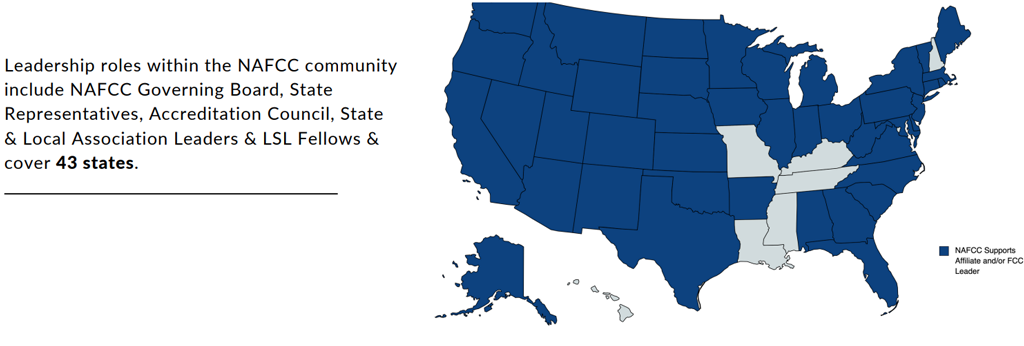In today’s rapidly evolving world, the significance of accessible and high-quality child care cannot be overstated. The challenges surrounding child care have long been a concern shared by families and policymakers alike. In the midst of these challenges, a potent solution often goes unnoticed — the capable hands of Family Child Care (FCC) educators. These unsung heroes who provide childcare in home-based environments are more than just caregivers; they are leaders poised to play a pivotal role in addressing child care challenges across the nation.
A recent brief from the National Association for Family Child Care (NAFCC) sheds light on the vital role of FCC leadership in tackling child care challenges at the local level. This document underscores how FCC leadership contributes to the expansion and sustenance of dependable, high-quality child care options for families with young children, thereby providing enduring and exceptional child care solutions.
An Industry in Demand
In spite of significant demand, the number of authorized FCC programs has been decreasing. The predicament surrounding FCC programs could have been even graver were it not for the prompt aid provided by COVID-19 relief funds. However, the future of some FCC programs are uncertain as the funds are set to expire on September 30th.
In the midst of persistent demand for FCC services, it becomes crucial to explore the motivations of educators who have chosen to persevere. According to recent findings from the Erikson Institute (Bromer et al., 2021), the most commonly cited support for FCC educators who remained open was support from their peers and organizations that helped them to overcome challenges in distinct ways.
The encouragement, emotional reinforcement, and shared knowledge from peers —particularly within FCC associations — provided a strong foundation of social, emotional, and informational assistance. The brief expands on this data as well as provides an example of a FCC peer leader’s positive impact on FCC recruitment and retention in Ohio.
NAFCC Support for Leaders
NAFCC has a critical role to play in sustaining peer support groups and building grassroots leadership to reverse the decline in the supply of family child care programs and ensure all families have access to child care. Recognizing the influence of FCC leadership in aiding an industry in crisis, NAFCC has introduced a range of programs aimed at enhancing the leadership capabilities of FCC educators nationwide, including:
- Leaders Shaping Leadership fellowship
- Leadership Day as part of its Annual NAFCC Conference
- Professional Development Academy
- A national accreditation program

What FCC Leaders Are Saying
In a survey of FCCS leaders within the NAFCC network representing more than 1,700 educators in 15 states. Roughly 77 percent reported that active FCC educators made up much of the staff, board members, or volunteers working on behalf of the organization. An astounding 88 percent also reported collaborating with additional community organizations to share resources and influence policies. The survey found FCC educators are serving as leaders across diverse organizations and movements.
“I can’t reiterate enough that we need to stand in partnership with what is happening in our communities,” said Mary Curry, Director of the Washington State Early Childhood Education and Assistance Program and Public Policy Representative for the Washington State Family Child Care Association. “Things we do are growing out of the community that we serve.”
Supporting Educator Leadership
While supporting FCC associations and peer networks is vital for retaining FCC programs, it cannot replace the need to address the economic challenges faced by educators and families. Public investment in a diverse child care system is indispensable, offering families choices and ensuring equitable wages for educators. In addition, here are six ideas for supporting educator leadership to increase FCC retention.
- Understand and build on existing FCC programs and leadership
- Make capacity building and funding available for FCC-led associations and peer networks
- Offer leadership development opportunities and encourage participation in professional associations
- Include FCC-led organizations in ECE systems building and beyond
- Build a big tent: FCC-led organizations should be inclusive of all home-based child care partner with similar grassroots organizations
- Engage FCC leaders as equal partners and build in compensation and flexibility to respect their expertise and time
Finally, NAFCC recently redesigned the affiliate program. At the National Association for Family Child Care (NAFCC), relationships with local family child care associations serve an important role in our mission to support and leverage a nationwide network of educators and partners in expanding and promoting the power of family child care, by connecting practice, policy, and research. FCC-led organizations interested in partnering with NAFCC can find out more here.
To access the entire brief, click here.





